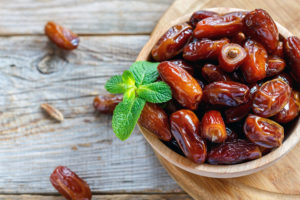During the month of Ramadan, maintaining a healthy immune system and following social distancing norms should be the top priority for Muslims observing fast
Come 24 April, Muslims around the world will start observance of the holy month of Ramadan. However, due to the Coronavirus, the observance of fasts and other important aspects of the month may not be such a good idea for everyone. Patriot talked to Uma Trasi, Senior Dietician (M Sc – Nutrition and Dietetics) Manipal Hospitals, Malleswaram, to find out if observance of fast during Ramadan can pose additional risks to the Muslims and the larger population and the precautions that they can take.
One of the principal problems when it comes to combating COVID-19 is the presence of asymptomatic carriers. What this means is that people infected with the virus may show very minor or no symptoms, effectively becoming carriers who can go on to infect others.
“Remember that COVID-19 affects mainly the respiratory organs and sometimes the symptoms are similar to common flu, hence one should be cautious. People above 60 years have less immunity and are more prone to infections. Word of caution — at any time if you have dry cough and sore throat, headache, change in gastrointestinal symptoms, it is best to consult doctors,” says Trasi.
In such a scenario, the suspension of congregational prayers has already been accepted worldwide as the best option. Keeping in line with the call for social distancing and the rising concerns from Coronavirus, Saudi Arabia has announced that Taraweeh (special evening prayers during the month) will not be organised. This is an example Muslims across should follow even if lockdown norms are relaxed.
Delhi’s Imams have advised Muslims to stay indoors during the month of Ramadan. While fasting and praying can be done at home, it is important to remain healthy during this period as well.
In terms of observing fast and the impact it can have on the health of individuals, Uma Trasi says, “The impact depends on the immunity developed by each individual. It varies from person to person. People in the age group of 60 and above should get back to a normal balanced diet”.
It may be possible for people to fast without any negative consequences. However, she adds, “The elderly and people with pre-existing medical conditions (such as asthma, diabetes, and heart disease) appear to be more vulnerable to becoming severely ill with the virus. As age advances, the immunity level drops so the elderly should have a balanced Sehri meal and a balanced Iftar meal, and observe a high level of hygiene and social distancing”.

During the month when people fast, it may not be easy for them to ensure a nutritious and balanced diet due to restrictions. As such, for people observing the fast, Sehri (meal before sunrise) and Iftar (meal after sunset) become their most important meals. To ensure that people do not miss out on the importance of these meals, Uma says “Be ‘nutrivigilant’ in both Sehri and Iftar meals”.
A healthy Sehri, as per the nutritionist, should include “fibrous fruits like banana, apples and apricots and whole grains like barley, chickpea, oats, wheat and millets.” These are high on energy and will keep people going throughout the day.
She also advocates the benefits of proteins saying, “Protein is another nutrient that makes an important part of the Sehri meal. Sneak in proteins in the form of eggs, chicken, yoghurt, lentils. Proteins will help you keep active and your energy levels up. Keema or shami kebab should be well cooked since the virus is destroyed at high temperatures. Add an Immune booster – like a veg and bean salad. Include chicken or lamb biryani cooked under hygienic conditions and do some mindful eating. Add an Arabian chicken stew, chicken corn soup or chicken mushroom cream soup.
For hydration, she advises intake of coconut water, cucumbers, pineapple, tomatoes, oranges and lots of water.
For Iftar, she says, “Hydrate before eating. Drink plenty of fluids such as water, freshly squeezed juice, or milk…Remember, breaking your fast at Iftar with water is not only traditional, it also ensures that you get the best source of hydration into your body before becoming distracted with food”. Other than that, she advises intake of dates (traditionally the first item consumed when breaking the fast), whole grains, vegetables, fruits, lean protein, healthy fat (fat from plants, like olive oil and nuts) to give your body all the nutrients it needs.
While many will fast within the relative comfort of their homes, others will be out ensuring the smooth functioning of essential services. For individuals involved in healthcare and other essential services, fasting becomes even more trying. On top of that, they are at a higher risk of exposure. So they should take special care.
Trasi shares that for these people, Sehri becomes an even more important meal and should be balanced with whole grains, cereals, nuts and fruits. Apart from this, they should take special care to ensure proper hydration to ward off infections along with other mandated and advised precautions advised by the government.
Another important thing that they should not overlook is regular exercise. She says, “Though fasting can be physically exhausting, try not to be completely sedentary. If your mornings are busy, switch exercise to the evening.” Apart from exercise she also stresses upon the need for a healthy sleep cycle as it is very important in the maintenance of a healthy immune system.
The month of Ramadan has great religious relevance for every Muslim. The Muslim community at large must ensure good health and send up a special prayer to help the world fight the pandemic.





